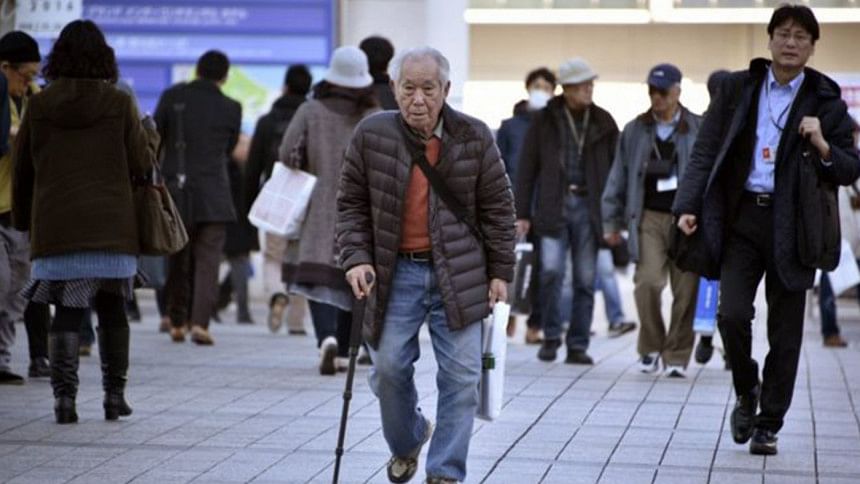Japan census shows 1m population loss

New census figures in Japan show the population has shrunk by nearly one million in the past five years, in the first decline registered since 1920.
As of October last year the country has 127.1 million people, 0.7% fewer than in the last census.
Demographers have long predicted a drop, citing Japan's falling birth rate and a lack of immigration.
The rapidly ageing population has contributed to a stagnating economy and worries of increasing health costs.
SHARP DROP-OFFS
Japan now has 947,000 fewer people than when the last census was conducted in 2010, figures released by the internal affairs ministry show.
Only eight prefectures, including the capital Tokyo, saw a population increase, national broadcaster NHK. reported.
The remaining 39 all saw declines, including Fukushima which saw the largest drop of 115,000 people.
Fukushima, site of the doomed nuclear power station, was hit especially badly by the 2011 earthquake and tsunami.
Japan has seen population growth for much of the past century, but this has been slowing rapidly in recent decades. The last census showed the population had completely stopped growing.
Friday's numbers mark the first time a decline has been recorded in the census, which has been taken every five years since 1920.
Researchers are predicting a sharp drop-off in the working population and a simultaneous rise in the number of elderly in coming decades.
According to government projections, by 2060 about 40% of its citizens will be sixty-five or older, and the general population will be one-third smaller than it is now.
Prime Minister Shinzo Abe has made it a priority to boost the birthrate from 1.4 children to 1.8 children per woman, including improving childcare and tax incentives. Advanced economies usually require a rate of at least 2.1 for a stable population.

 For all latest news, follow The Daily Star's Google News channel.
For all latest news, follow The Daily Star's Google News channel. 








Comments